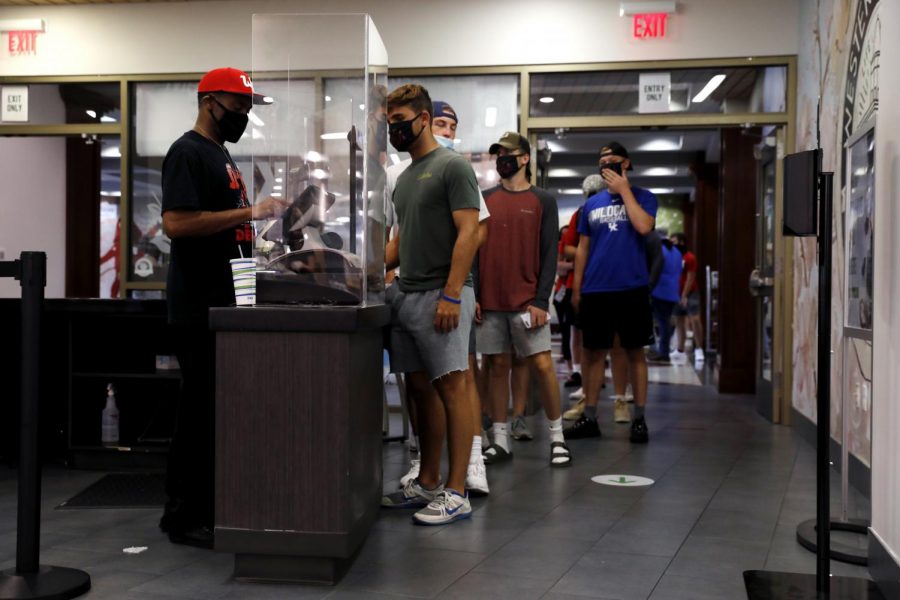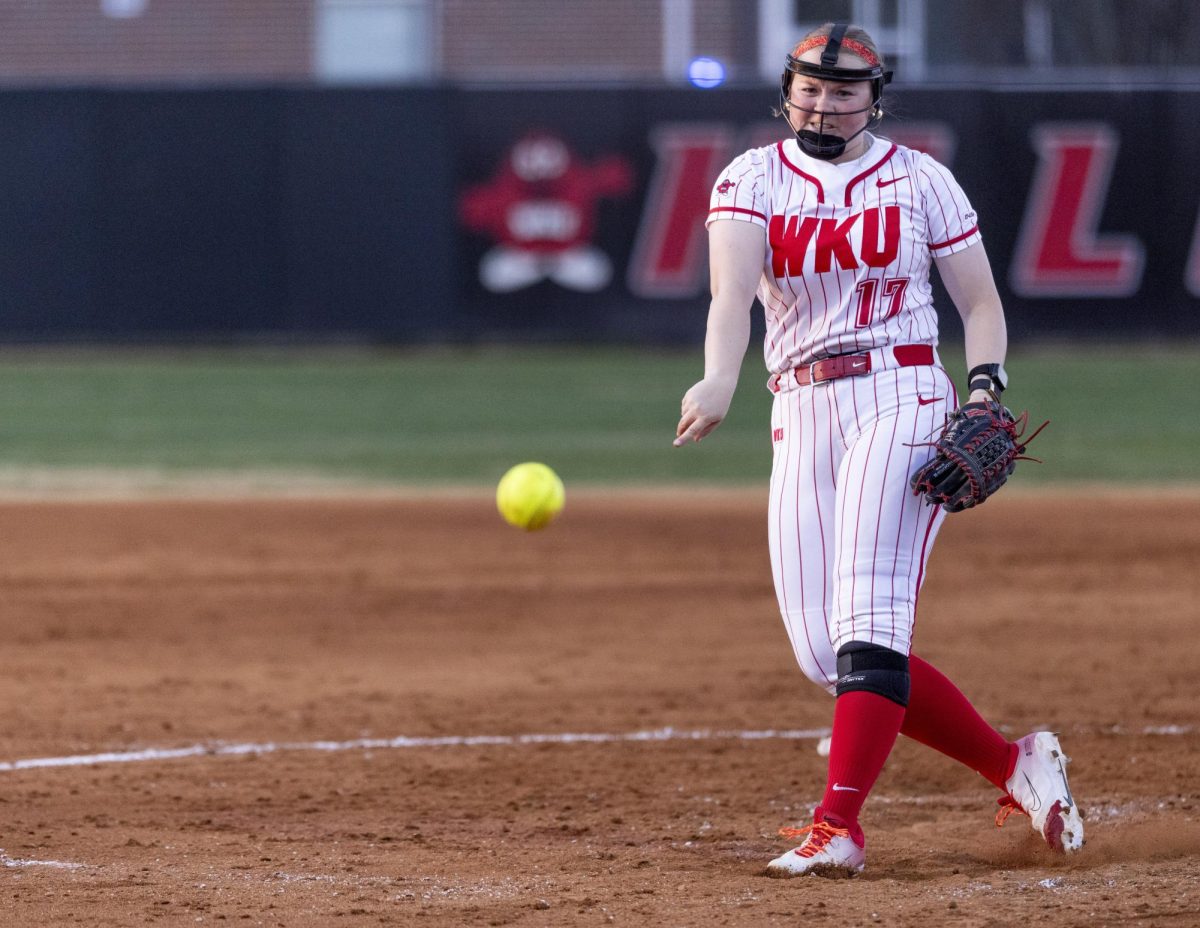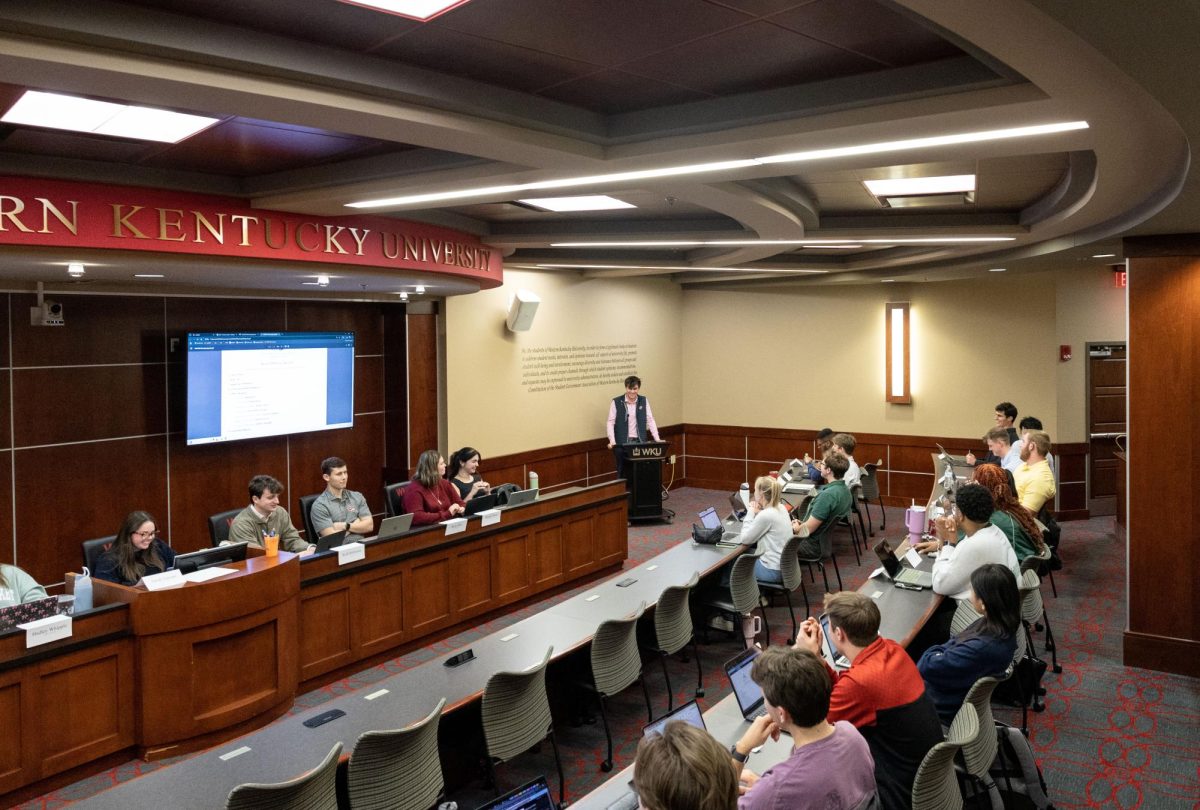Mandatory Flex dollar fee continues to apply during ongoing distance and hybrid learning
March 30, 2021
WKU students who do not have a meal plan have continued to pay a $300 food expense despite the unusual conditions of the COVID-19 pandemic.
A full-time WKU student who, lives off campus, opts out of a student meal plan and continues to take at least three in-person courses on the Bowling Green campus, must to pay $300 for a mandatory meal plan every semester. Students can use the mandatory meal plan dollars, also known as Flex dollars, at on-campus dining locations throughout the semester.
The $300 Flex dollar charge was set when WKU agreed to a 20-year contract with food company Aramark in 2017. Beginning in Fall 2022, students will have to pay $325 per semester for the Flex dollar plan. Starting in Fall 2026, the plan will cost $350 a semester. The revenue from the Flex dollar plan helps fund major on-campus projects, such as the construction of the WKU Commons.
Max Chambers, a senior English major from Elizabethtown, and former Herald staffer, has paid for Flex dollars since Spring 2020. Chambers has rarely used their Flex dollars during the COVID-19 pandemic, so they currently have over $600 flex dollars stored in their account.
“If I’m on campus a lot, I might use $100 [per semester], but I barely use any and last semester I was entirely online,” Chambers said.
Chambers believes the mandatory meal plan is not necessary.
“If people who live off campus have kitchens and places to store food, there’s no reason they should have to buy food on campus,” Chambers said.
The contract between WKU and Aramark states that the two parties can agree to renegotiate the financial terms of the contract if WKU’s financial conditions change. Mike Reagle, assistant vice president for Student Engagement and executive director for Housing and Dining, said WKU has not attempted to renegotiate the terms of its contract with Aramark during the COVID-19 pandemic “as it is not necessary to do so.”
“Aramark has been a tremendous partner and has worked with us every step of the way to continue to operate our food service in a manner that meets the needs of both WKU and Aramark,” Reagle said in an email.
Chambers said WKU should not force students to pay for Flex dollars during the COVID-19 pandemic because purchasing food at on- campus dining locations requires in-person contact.
“So many classes have moved online, so many people have chosen to move all their work online so they don’t have to come in contact with people, so it frustrates me that the school is asking me to come in contact with people in order to use this money that they have taken from me,” Chambers said. “I would prefer not to go to campus to buy food because it’s safer to just purchase food in my own home.”
According to the dining services contract, Flex dollars that are not used during the current semester can be spent in future semesters if the student continues to attend WKU. WKU would retain any unused Flex dollars once a student on the mandatory meal plan graduates or stops attending the university.
Nico Fitzpatrick, a senior film major from Lexington, rarely used his Flex dollars from last semester, so he has had plenty to spend this semester, he said.
“I’m down to like $400 this semester at this point, but I’m trying to spend as much as possible so it doesn’t vanish into nothing,” Fitzpatrick said.
Fitzpatrick said students who qualify for the Flex dollar plan should not be required to pay the $300 expense, especially since the unused Flex dollars will not be refunded.
“For people who aren’t paying for it through scholarships like I am, that’s just $600 that will vanish into thin air for the most part,” Fitzpatrick said.
The COVID-19 pandemic emphasized the inconvenience of traveling to campus just to use Flex dollars, Fitzpatrick said. Leaving your home is not the best choice when contactless options are available.
Jordan Amis, a recreation administration major from Nashville, occasionally spends the Flex dollars in his account by making expensive purchases at P.O.D. and Chick-fil-A. Because WKU requires a group of off-campus students to pay $300 for a mandatory meal plan, it seems like the plan itself is a “cash grab,” Amis said.
“It takes away the liquidity of your money because that’s just $300 that you could’ve spent anywhere, but now you can only spend it on campus,” Amis said
Amis wishes WKU would allow students to use their Flex dollars anywhere on campus.
“I think one thing that I don’t love about them is that you can only use them for dining,” Amis said. “I would love it if you could use them at the WKU Store when you’re buying your textbooks.”
Leo Bertucci can be reached at leo.bertucci665@topper.wku. edu Follow him on Twitter @ leober2chee.















